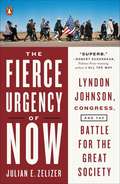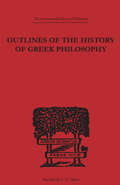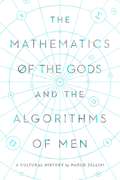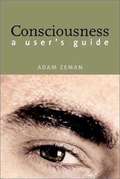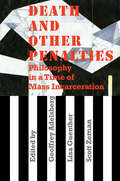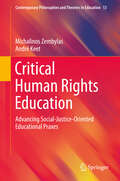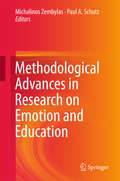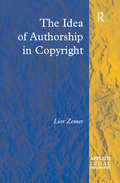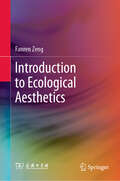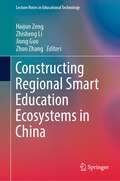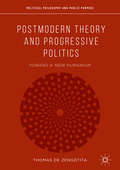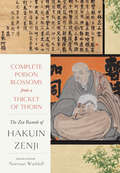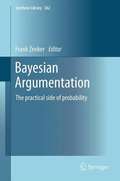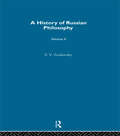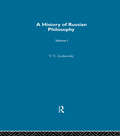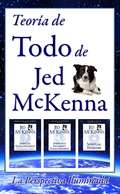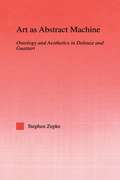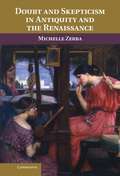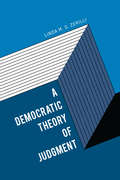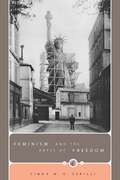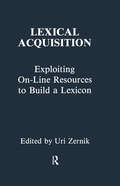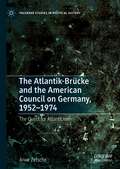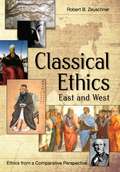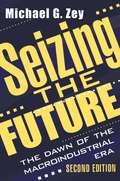- Table View
- List View
The Fierce Urgency of Now
by Julian E. ZelizerA majestic big-picture account of the Great Society and the forces that shaped it, from Lyndon Johnson and members of Congress to the civil rights movement and the mediaBetween November 1963, when he became president, and November 1966, when his party was routed in the midterm elections, Lyndon Johnson spearheaded the most transformative agenda in American political history since the New Deal, one whose ambition and achievement have had no parallel since. In just three years, Johnson drove the passage of the Civil Rights and Voting Rights Acts; the War on Poverty program; Medicare and Medicaid; the National Endowments for the Arts and the Humanities; Public Broadcasting; immigration liberalization; a raft of consumer and environmental protection acts; and major federal investments in public transportation. Collectively, this group of achievements was labeled by Johnson and his team the "Great Society."In The Fierce Urgency of Now, Julian E. Zelizer takes the full measure of the entire story in all its epic sweep. Before Johnson, Kennedy tried and failed to achieve many of these advances. Our practiced understanding is that this was an unprecedented "liberal hour" in America, a moment, after Kennedy's death, when the seas parted and Johnson could simply stroll through to victory. As Zelizer shows, this view is off-base: In many respects America was even more conservative than it seems now, and Johnson's legislative program faced bitter resistance. The Fierce Urgency of Now animates the full spectrum of forces at play during these turbulent years, including religious groups, the media, conservative and liberal political action groups, unions, and civil rights activists.Above all, the great character in the book whose role rivals Johnson's is Congress--indeed, Zelizer argues that our understanding of the Great Society program is too Johnson-centric. He discusses why Congress was so receptive to passing these ideas in a remarkably short span of time and how the election of 1964 and burgeoning civil rights movement transformed conditions on Capitol Hill. Zelizer brings a deep, intimate knowledge of the institution to bear on his story: The book is a master class in American political grand strategy.Finally, Zelizer reckons with the legacy of the Great Society. Though our politics have changed, the heart of the Great Society legislation remains intact fifty years later. In fact, he argues, the Great Society shifted the American political center of gravity--and our social landscape--decisively to the left in many crucial respects. In a very real sense, we are living today in the country that Johnson and his Congress made.
The Fierce Urgency of Now
by Julian E. ZelizerA majestic big-picture account of the Great Society and the forces that shaped it, from Lyndon Johnson and members of Congress to the civil rights movement and the mediaBetween November 1963, when he became president, and November 1966, when his party was routed in the midterm elections, Lyndon Johnson spearheaded the most transformative agenda in American political history since the New Deal, one whose ambition and achievement have had no parallel since. In just three years, Johnson drove the passage of the Civil Rights and Voting Rights Acts; the War on Poverty program; Medicare and Medicaid; the National Endowments for the Arts and the Humanities; Public Broadcasting; immigration liberalization; a raft of consumer and environmental protection acts; and major federal investments in public transportation. Collectively, this group of achievements was labeled by Johnson and his team the "Great Society."In The Fierce Urgency of Now, Julian E. Zelizer takes the full measure of the entire story in all its epic sweep. Before Johnson, Kennedy tried and failed to achieve many of these advances. Our practiced understanding is that this was an unprecedented "liberal hour" in America, a moment, after Kennedy's death, when the seas parted and Johnson could simply stroll through to victory. As Zelizer shows, this view is off-base: In many respects America was even more conservative than it seems now, and Johnson's legislative program faced bitter resistance. The Fierce Urgency of Now animates the full spectrum of forces at play during these turbulent years, including religious groups, the media, conservative and liberal political action groups, unions, and civil rights activists.Above all, the great character in the book whose role rivals Johnson's is Congress--indeed, Zelizer argues that our understanding of the Great Society program is too Johnson-centric. He discusses why Congress was so receptive to passing these ideas in a remarkably short span of time and how the election of 1964 and burgeoning civil rights movement transformed conditions on Capitol Hill. Zelizer brings a deep, intimate knowledge of the institution to bear on his story: The book is a master class in American political grand strategy.Finally, Zelizer reckons with the legacy of the Great Society. Though our politics have changed, the heart of the Great Society legislation remains intact fifty years later. In fact, he argues, the Great Society shifted the American political center of gravity--and our social landscape--decisively to the left in many crucial respects. In a very real sense, we are living today in the country that Johnson and his Congress made.
Outlines of the History of Greek Philosophy (International Library of Philosophy)
by Eduard ZellerFirst published in 2000. Routledge is an imprint of Taylor & Francis, an informa company.
The Mathematics of the Gods and the Algorithms of Men: A Cultural History
by Paolo ZelliniA masterful cultural history of mathematics from bestselling Italian mathematician and philosopher Paolo Zellini.Is mathematics a discovery or an invention? Have we invented numbers or do they truly exist? What sort of reality should we attribute to them? Mathematics has always been a way of understanding and ordering the world: from sacred ancient texts and pre-Socratic philosophers to twentieth-century logicians such as Russell and Frege and beyond. In this masterful, elegant book, mathematician and philosopher Paolo Zellini offers a brief cultural and intellectual history of mathematics, from ancient Greece to India to our contemporary obsession with algorithms, showing how mathematical thinking is inextricably linked with philosophical, existential and religious questions—and indeed with our cosmic understanding of the world.
Consciousness: A User's Guide
by Adam ZemanThis engaging and readable book provides an introduction to consciousness that does justice both to the science and to the philosophy of consciousness, that is, the mechanics of the mind and the experience of awareness. The book opens with a general discussion of the brain and of consciousness itself. Then, exploring the areas of brain science most likely to illuminate the basis of awareness, Zeman focuses on the science of sleep and waking and on the science of vision. He describes healthy states and disorders--epilepsy, narcolepsy, blindsight and hallucinations after stroke--that provide insights into the capacity for consciousness and into its contents. And he tracks the evolution of the brain, the human species, and human culture and surveys the main current scientific theories of awareness, pioneering attempts to explain how the brain gives rise to experience. Zeman concludes by examining philosophical arguments about the nature of consciousness. A practicing neurologist, he animates his text with examples from the behavioral and neurological disorders of his patients and from the expanding mental worlds of young children, including his own. His book is an accessible and enlightening explanation of why we are conscious.
Death and Other Penalties: Philosophy in a Time of Mass Incarceration
by Scott Zeman Lisa Guenther Geoffrey AdelsbergMass incarceration is one of the most pressing ethical and political issues of our time. In this volume, philosophers join activists and those incarcerated on death row to grapple with contemporary U.S. punishment practices and draw out critiques around questions of power, identity, justice, and ethical responsibility. This work takes shape against a backdrop of disturbing trends: The United States incarcerates more of its own citizens than any other country in the world. A disproportionate number of these prisoners are people of color, and, today, a black man has a greater chance of going to prison than to college. The United States is the only Western democracy to retain the death penalty, even after decades of scholarship, statistics, and even legal decisions have depicted a deeply flawed system structured by racism and class oppression. Motivated by a conviction that mass incarceration and state execution are among the most important ethical and political problems of our time, the contributors to this volume come together from a diverse range of backgrounds to analyze, critique, and envision alternatives to the injustices of the U.S. prison system, with recourse to deconstruction, phenomenology, critical race theory, feminism, queer theory, and disability studies. They engage with the hyper-incarceration of people of color, the incomplete abolition of slavery, the exploitation of prisoners as workers and as “raw material” for the prison industrial complex, the intensive confinement of prisoners in supermax units, and the complexities of capital punishment in an age of abolition. The resulting collection contributes to a growing intellectual and political resistance to the apparent inevitability of incarceration and state execution as responses to crime and to social inequalities. It addresses both philosophers and activists who seek intellectual resources to contest the injustices of punishment in the United States.
Critical Human Rights Education: Advancing Social-Justice-Oriented Educational Praxes (Contemporary Philosophies and Theories in Education #13)
by Michalinos Zembylas André KeetThis book engages with human rights and human rights education (HRE) in ways that offer opportunities for criticality and renewal. It takes up various ideas, from critical and decolonial theories to philosophers and intellectuals, to theorize the renewal of HRE as Critical Human Rights Education.The point of departure is that the acceptable “truths” of human rights are seldom critically examined, and productive interpretations for understanding and acting in a world that is soaked in the violations these rights try to address, cannot emerge.The book cultivates a critical view of human rights in education and beyond, and revisits receivable categories of human rights to advance social-justice-oriented educational praxes. It focuses on the ways that issues of human rights, philosophy, and education come together, and how a critical project of their entanglements creates openings for rethinking human rights education (HRE) both theoretically and in praxis.Given the persistence of issues of human rights worldwide, this book will be useful to researchers and educators across disciplines and in numerous parts of the world.
Methodological Advances in Research on Emotion and Education
by Michalinos Zembylas Paul A. SchutzThis volume presents different conceptual and theoreticalframeworks as well as research methods that have helped educational researchersto study emotions. It includes innovative approaches that push themethodological boundaries that have served educational researchers until nowand proposes new ways of researching emotions in educational contexts. In particular,this edited volume provides a historical frame for studying emotions. Itconnects theoretical/epistemological views with choice of research methods and describes specificmethods helpful in doing research on emotions as they are grounded in differenttheoretical and disciplinary traditions such as psychology, philosophy,sociology, history, political science, cultural studies, and feminist studies. Finally, it appreciates the contextual and international dimensions of studyingemotions in education and contributes to ongoing debates about the implicationsof our methodological choices for understanding emotion in education. Thiscombination of variety, timeliness, potential for transformation of the field,and uniqueness make this a very valuable resource to introduce new scholars inthe field alongside established scholars.
The Idea of Authorship in Copyright (Applied Legal Philosophy)
by Lior ZemerAs information flows become increasingly ubiquitous in our post digital environment, the challenges to traditional concepts of intellectual property and the practices deriving from them are immense. The romantic understanding of the lone author as an endless source of new creations has to face these challenges. In order to do so, this work presents a collectivist model of intellectual property rights. The core argument is that since copyright works enjoy profit from significant public contribution, they should not be privately owned, but considered to be a joint enterprise, made real by both the public and author. It is argued that every copyright work depends on and is reflective of the author's exposure to externalities such as language, culture and the various social events and processes that occur in the public domain, therefore copyright works should not be regarded as exclusive private property. The study takes its organizing principle from John Locke, defining and proving the fatal flaw inherent in debates on copyright: on the one hand the copyright community is eager to arm authors with a robust property right over their creation, while on the other this community totally ignores the fact that the exposure of the individual to externalities is what makes him or her capable of creating material that is copyrightable. Just as Locke was against the absolute authority of kings, the expressed view of the study is against the exclusive right an author can claim.
Introduction to Ecological Aesthetics
by Fanren ZengThis book explores in detail the issues of ecological civilization development, ecological philosophy, ecological criticism, environmental aesthetics, and the ecological wisdom of traditional Chinese culture related to ecological aesthetics. Drawing on Western philosophy and aesthetics, it proposes and demonstrates a unique aesthetic view of ecological ontology in the field of aesthetics under the direct influence of Marxism, which is based on the modern economic, social cultural development and the modern values of traditional Chinese culture.This book embodies the innovative interpretation of Chinese traditional culture in the Chinese academic community. The author discusses the philosophical and cultural resources that can be used for reference in Chinese and Western cultural tradition, focusing on traditional Chinese Confucianism, Taoism, Buddhism and painting art, Western modern ecological philosophy, Heidegger's ontology ecological aesthetics, and British and American environmental aesthetics.In short, the book comprehensively discusses the author's concept of ecological ontology aesthetics as an integration and unification of ontology aesthetics and ecological aesthetics. This generalized ecological aesthetics explores the relationship between humans and nature, society and itself, guided by the brand-new ecological worldview in the post-modern context. It also changes the non-beauty state of human existence and establishes an aesthetic existence state that conforms to ecological laws.
Constructing Regional Smart Education Ecosystems in China (Lecture Notes in Educational Technology)
by Haijun Zeng Zhisheng Li Jiong Guo Zhuo ZhangThis book enriches the understanding of regional smart education in China and promotes sharing of smart education case studies in China and abroad. It presents 46 case studies selected from a total of 644 case studies collected nationwide in China. These selected case studies focus on regional construction, research findings, and solutions. The case studies on regional construction mainly focus on the sustainable development mechanism of regional smart education. The research findings case studies showcase research results produced by research teams and individuals, which involve theories, models, technologies, practical investigations, or international comparisons related to smart education. Lastly, the solution case studies are technical solutions provided by enterprises for the development of smart education, which include application scenarios, methods, and effects in regions or schools around smart educational equipment, platforms, networks, tools, resources, or integrated solutions.
Postmodern Theory and Progressive Politics: Toward a New Humanism (Political Philosophy and Public Purpose)
by Thomas De ZengotitaThis book examines the lasting influence of the academic culture wars of the late 20th century on the humanities and progressive politics, and what to make now of those furious debates over postmodernism, multiculturalism, relativism, critical theory, deconstruction, post-structuralism, and so on. In an effort to arrive at a fair judgment on that question, the book reaches for an understanding of postmodern theorists by way of two genres they despised; and hopes, for that reason, to do them justice. The story, in its telling, justifies two basic claims: first, that the phenomenological/hermeneutical tradition is the most suitable source of theory for a humanism that aspires to be truly universal; and, second, that the ethical and political aspect of the human condition is authentically accessible only through narrative. In conclusion, it argues that the postmodern moment was a necessary one, or will have been if we rise to the occasion—and that that is its historical significance.
Complete Poison Blossoms from a Thicket of Thorn: The Zen Records of Hakuin Ekaku
by Hakuin ZenjiFollowing his translation of just over half the original text in 2014, Norman Waddell presents the complete teaching record of Zen master Hakuin, now available in English with extensive explanations, notes, and even the wry, helpful comments that students attending Hakuin’s lectures inscribed in their copies of the textWith this volume, Norman Waddell completes his acclaimed translation of the teaching record of one of the greatest Zen masters of all time, Hakuin Ekaku (1685–1769). Hakuin lived at a time when Japanese Buddhism as a whole and his own Rinzai sect in particular were at low ebb. Through tremendous force of character and creative energy, he initiated a reform movement that swept the country, and today, all Rinzai Zen masters trace their lineage through him. This outcome is all the more extraordinary because Hakuin’s base of operations was a small temple in the country town of Hara, where he grew up, not in one of the nation's political, cultural, or commercial centers.This book represents the first full publication of the Keisō Dokuzui in any foreign language. Inspired by the enthusiastic reception that greeted his 2014 selections from the text, Waddell returned to work and now gives us the opportunity to examine the entirety of Hakuin's record and to benefit as never before from the example and instruction of this exuberant personality and remarkable teacher. Poison Blossoms contains a highly diverse set of materials: formal and informal presentations to monastic and lay disciples, poems, practice instructions, inscriptions for paintings, comments on koans, letters, and funeral orations. While most items are brief, easily read in a quick sitting, the book also includes extended commentaries on the Heart Sutra, one of Mahayana Buddhism’s central texts; on the famously difficult Five Ranks of Tung–shan; and on the accomplishments of his eminent predecessor Gudō Tōshoku.Having devoted himself for more than three decades to the study and translation of Hakuin's works, Norman Waddell is peerless when it comes to conveying into English the vital, sometimes elegant, often earthy voice of this outstanding teacher. His command of the subject enables Waddell to elucidate the vast array of idioms and images that Hakuin employed to enliven his poetry and prose—historical and mythological elements, street slang, doctrinal and cultural allusions that would otherwise place these writings beyond the grasp of anyone but a specialist. Waddell's five previous Hakuin translations, each important in its own right, can now be recognized as stepping stones to this towering achievement.
Bayesian Argumentation: The practical side of probability (Synthese Library #362)
by Frank ZenkerRelevant to, and drawing from, a range of disciplines, the chapters in this collection show the diversity, and applicability, of research in Bayesian argumentation. Together, they form a challenge to philosophers versed in both the use and criticism of Bayesian models who have largely overlooked their potential in argumentation. Selected from contributions to a multidisciplinary workshop on the topic held in Sweden in 2010, the authors count linguists and social psychologists among their number, in addition to philosophers. They analyze material that includes real-life court cases, experimental research results, and the insights gained from computer models. The volume provides, for the first time, a formal measure of subjective argument strength and argument force, robust enough to allow advocates of opposing sides of an argument to agree on the relative strengths of their supporting reasoning. With papers from leading figures such as Michael Oaksford and Ulrike Hahn, the book comprises recent research conducted at the frontiers of Bayesian argumentation and provides a multitude of examples in which these formal tools can be applied to informal argument. It signals new and impending developments in philosophy, which has seen Bayesian models deployed in formal epistemology and philosophy of science, but has yet to explore the full potential of Bayesian models as a framework in argumentation. In doing so, this revealing anthology looks destined to become a standard teaching text in years to come.
History Russian Philosophy V2 (Routledge Library Editions Ser.)
by V V ZenkovskyFirst published in 2003. Routledge is an imprint of Taylor & Francis, an informa company.
History Russian Philosophy V1 (Routledge Library Editions Ser.)
by V. V. ZenkovsyFirst published in 2003. Routledge is an imprint of Taylor & Francis, an informa company.
Teoría de todo, de Jed McKenna--La perspectiva iluminada
by Maria-Teresa Zenteno Jed MckennaLos libros de Jed McKenna son lectura obligada para cualquier persona que no tenga miedo de ir donde la investigación honesta le conduzca, y nadie que sea serio acerca de su espiritualidad puede permitirse no leerlos. El lema de Wisefool Press es "La búsqueda ha terminado". Hay buenas razones para decir eso. Algunos lectores se han referido a los últimos libros de Jed como "los últimos libros espirituales que una persona necesitará leer", y también hay buenas razones para ello. La conclusión es que la espiritualidad tiene una cuestión fundamental que responder y Jed nos muestra dónde se encuentra.
Art as Abstract Machine: Ontology and Aesthetics in Deleuze and Guattari
by Stephen ZepkeFirst Published in 2005. Routledge is an imprint of Taylor & Francis, an informa company.
Doubt and Skepticism in Antiquity and the Renaissance
by Michelle ZerbaThis book is an interdisciplinary study of the forms and uses of doubt in works by Homer, Sophocles, Aristophanes, Cicero, Machiavelli, Shakespeare, and Montaigne. Based on close analysis of literary and philosophical texts by these important authors, Michelle Zerba argues that doubt is a defining experience in antiquity and the Renaissance, one that constantly challenges the limits of thought and representation. The wide-ranging discussion considers issues that run the gamut from tragic loss to comic bombast, from psychological collapse to skeptical dexterity, and from solitary reflection to political improvisation in civic contexts and puts Greek and Roman treatments of doubt into dialogue not only with sixteenth-century texts, but with contemporary works as well. Using the past to engage questions of vital concern to our time, Zerba demonstrates that although doubt sometimes has destructive consequences, it can also be conducive to tolerance, discovery, and conversation across sociopolitical boundaries.
A Democratic Theory of Judgment
by Linda M. ZerilliIn this sweeping look at political and philosophical history, Linda M. G. Zerilli unpacks the tightly woven core of Hannah Arendt's unfinished work on a tenacious modern problem: how to judge critically in the wake of the collapse of inherited criteria of judgment. Engaging a remarkable breadth of thinkers, including Ludwig Wittgenstein, Leo Strauss, Immanuel Kant, Frederick Douglass, John Rawls, Jürgen Habermas, Martha Nussbaum, and many others, Zerilli clears a hopeful path between an untenable universalism and a cultural relativism that forever defers the possibility of judging at all. Zerilli deftly outlines the limitations of existing debates, both those that concern themselves with the impossibility of judging across cultures and those that try to find transcendental, rational values to anchor judgement. Looking at Kant through the lens of Arendt, Zerilli develops the notion of a public conception of truth, and from there she explores relativism, historicism, and universalism as they shape feminist approaches to judgment. Following Arendt even further, Zerilli arrives at a hopeful new pathway--seeing the collapse of philosophical criteria for judgment not as a problem but a way to practice judgment anew as a world-building activity of democratic citizens. The result is an astonishing theoretical argument that travels through--and goes beyond--some of the most important political thought of the modern period.
Feminism and the Abyss of Freedom
by Linda M. ZerilliIn contemporary feminist theory, the problem of feminine subjectivity persistently appears and reappears as the site that grounds all discussion of feminism. In Feminism and the Abyss of Freedom, Linda M. G. Zerilli argues that the persistence of this subject-centered frame severely limits feminists' capacity to think imaginatively about the central problem of feminist theory and practice: a politics concerned with freedom. Offering both a discussion of feminism in its postmodern context and a critique of contemporary theory, Zerilli here challenges feminists to move away from a theory-based approach, which focuses on securing or contesting "women" as an analytic category of feminism, to one rooted in political action and judgment. She revisits the democratic problem of exclusion from participation in common affairs and elaborates a freedom-centered feminism as the political practice of beginning anew, world-building, and judging. In a series of case studies, Zerilli draws on the political thought of Hannah Arendt to articulate a nonsovereign conception of political freedom and to explore a variety of feminist understandings of freedom in the twentieth century, including ones proposed by Judith Butler, Monique Wittig, and the Milan Women's Bookstore Collective. In so doing, Zerilli hopes to retrieve what Arendt called feminism's lost treasure: the original and radical claim to political freedom.
Lexical Acquisition: Exploiting On-line Resources To Build A Lexicon
by Uri ZernikOn-line information -- and free text in particular -- has emerged as a major, yet unexploited, resource available in raw form. Available, but not accessible. The lexicon provides the major key for enabling accessibility to on-line text. The expert contributors to this book explore the range of possibilities for the generation of extensive lexicons. In so doing, they investigate the use of existing on-line dictionaries and thesauri, and explain how lexicons can be acquired from the corpus -- the text under investigation -- itself. Leading researchers in four related fields offer the latest investigations: computational linguists cover the natural language processing aspect; statisticians point out the issues involved in the use of massive data; experts discuss the limitations of current technology; and lexicographers share their experience in the design of the traditional dictionaries.
The Atlantik-Brücke and the American Council on Germany, 1952–1974: The Quest for Atlanticism (Palgrave Studies in Political History)
by Anne Zetsche"“Based on impressive multi-archival work and a keen sense for a good narrative, the author introduces us to the complex, interlocking networks of the littleknown Atlantik-Brücke and the American Council on Germany. A fantastic addition to our understanding of the ‘Transnational Transatlantic’ in the 20th century”- Giles Scott-Smith, Roosevelt Chair in New Diplomatic History, Leiden University, The Netherlands"An original and insightful book exploring how two transatlantic networks worked to improve and solidify West Germany’s relationship with the United States in the aftermath of World War II- transnational history at its best.”- Deborah Barton, Assistant Professor of History, University of Montreal, Canada Revisiting the relationship between the USA and Germany following the Second World War, this book offers a new perspective and focuses on the influence of two organisations in accelerating West Germany’s integration into the Atlantic Alliance. Tracing the Atlantik-Brücke and the American Council on Germany’s (ACG) origins to the late 1940s and tracking their development and activities throughout the 1950s-70s, this book covers new ground in German-American historiography by bridging public and private relations and introducing central actors that have previously been hidden from academic debate. The author unveils and examines dense transatlantic elite networks that allowed Germany to re-join the ‘community of nations,’ regain sovereignty, and become a trusted member of the North Atlantic Treaty Organisation (NATO). Analysing transatlantic relations through the lens of the intertwined history of the Atlantik-Brücke and the ACG, this book explores public-private networks on a transnational level, providing valuable reading for those studying political history, European and American post-war relations and the Cold War.
Classical Ethics: Ethics From A Comparative Perspective: East And West
by Robert Zeuschner Adrienne Nunez Marshall GlickmanClassical Ethics is a thorough and well-balanced compendium of Western and non-Western ethical systems in a multicultural historical framework. Zeuschner focuses on the key concepts and presumptions of 13 major philosophers from around the world. He utilizes a systematic approach in his writing that describes the basic components of each system and discusses how each has maintained its appeal for so many centuries. In this text, Western tradition is represented by major classical figures: Socrates and Plato, Aristotle, Epicurus, St. Augustine, Aquinas, Butler, Hume, Kant, and Mill. Eastern ethical tradition is represented by Indian Buddhist ethics, Chinese Confucian ethics, and Chinese Taoist ethics of Lao-tzu and Chuang-tzu. This work broadens a student's perspective and enriches one's understanding of ethical principles as they occur and have developed historically in different cultural contexts.
Seizing the Future: Dawn of the Macroindustrial Era
by Michael G. Zey"Marked by verve, vision, and a thorough familiarity with the field, this book buoys the spirit, challenges conventional thinking, and arms the reader as do few comparable works in futuristics. Engagingly written, and free of both jargon and pretentiousness, it sets a high standard for 21st century explorations."--Arthur B. Shostak, Drexel University
